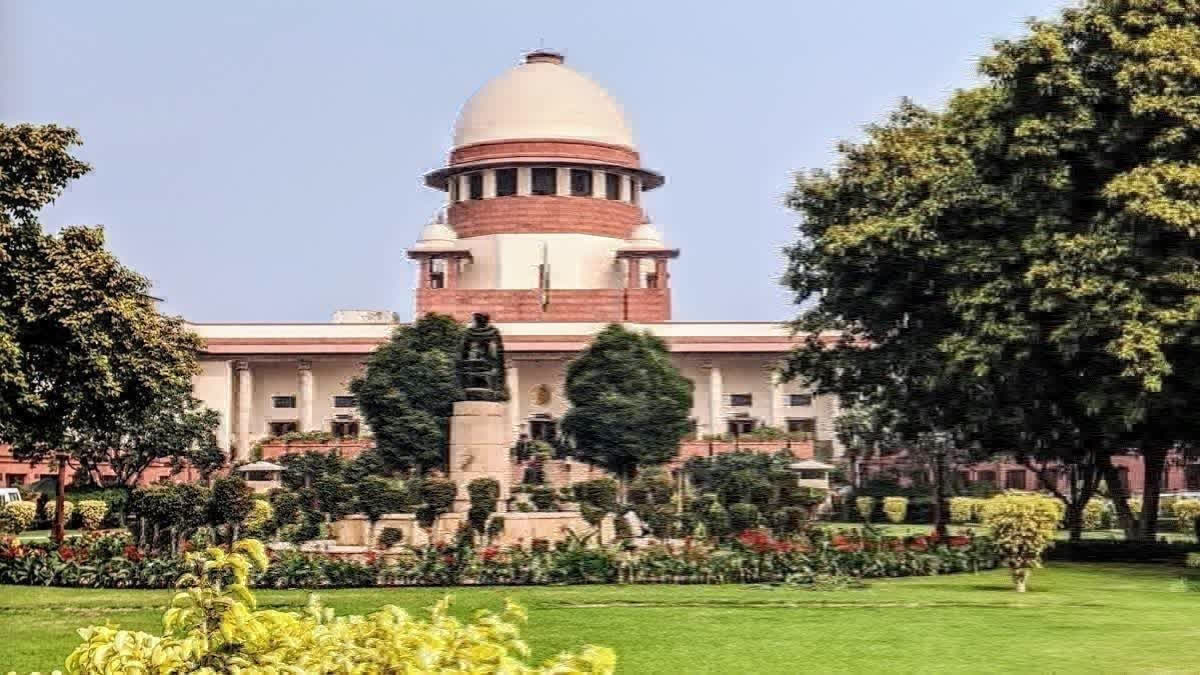New Delhi: Supreme Court judge Justice J B Pardiwala, while dissenting from the majority judgment on the validity of Section 6A of the Citizenship Act, 1955, said Section 6A of the Citizenship Act deserves to be declared invalid with prospective effect.
Justice Pardiwala, in a 127-page dissenting opinion, said the open-ended nature of Section 6A has, with the passage time, become more prone to abuse due to the advent of forged documents to establish, inter-alia, wrong date of entry into Assam, inaccurate lineage, falsified government records created by corrupt officials, dishonest corroboration of the date of entry by other relatives so as to aid illegal immigrants who are otherwise not eligible under Section 6A by virtue of having entered into Assam after 24.03.1971.
He said while the object that was sought to be achieved long back with the aid of the enactment of Section 6A of the Citizenship Act remained a distant dream, its misuse has only continued to increase with the efflux of time.
"Section 6A without any end date of application, promotes further immigration into Assam – immigrants come hoping with forged documents to set up the defence of belonging to pre-1966 or the 1966-71 stream upon identification as a foreigner and reference to the tribunal," he said.
Justice Pardiwala said with the passage of time, the government records would get damaged and perish making it increasingly difficult to cross-check the false claims that may be made by the immigrants of the post-1971 stream trying to misuse the benefits conferred exclusively to the immigrants of the pre-1971 stream.
"The underlying object behind the creation of two distinct categories of immigrants under Section 6A of the Citizenship Act could have been achieved only if the exercise of detection of the immigrants of the 1966-71 stream and their deletion from the electoral rolls was conducted in an en-masse and time-bound manner," he said.
He said that Section 6A, in the absence of any temporal limit to its application, was being counter-productive to the object of enactment. "I find no justification to hold that the classification made between the immigrants of the pre-1966 and 1966-71 stream still remains relevant to the object of Section 6A," said Justice Pardiwala.
He said neither Section 6A nor the rules made thereunder prescribe any outer time-limit for the completion of detection of all such persons who belong to the 1966-71 stream and are eligible to avail the benefits of Section 6A (3).
"The clock only starts to tick once the detection is made by the foreigners’ tribunal and there is no prescription as to the period of time within which the exercise of detection is to be completed from the commencement of Section 6A”, he said.
Justice Pardiwala said the absence of any prescribed time-limit for detection of foreigners of the 1966-71 stream has two-fold adverse consequences – first, it relieves the state from the burden of effectively identifying, detecting, and deleting from the electoral rolls, in accordance with law, all immigrants of the 1966-71 stream.
"Secondly, it incentivises the immigrants belonging to the 1966-71 stream to continue to remain on the electoral rolls for an indefinite period and only get themselves registered under Section 6A once detected by a competent tribunal. Hence, the manner in which the provision is worded, counter-serves the very purpose of its enactment….." the judge said.
Justice Pardiwala said: "I have reached the conclusion that Section 6A of the Citizenship Act deserves to be declared invalid with prospective effect”.
A constitution bench led by Chief Justice DY Chandrachud, and Justices Surya Kant, M M Sundresh, J B Pardiwala and Manoj Misra, by a majority view of 4:1, rejected a challenge to the legal provision.



